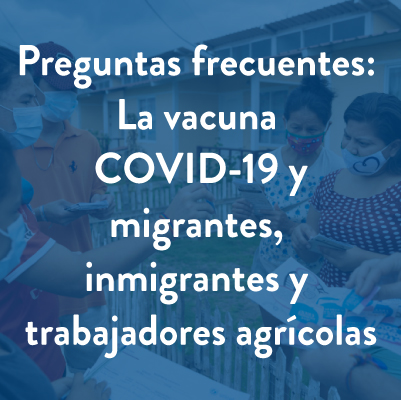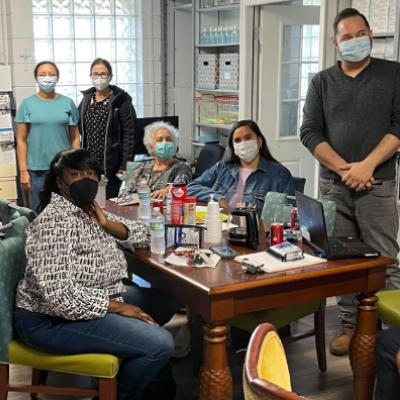- Who We Are
- Clinician Employment
- Publications
- Witness to Witness (W2W)
- El Premio Kugel & Zuroweste a la Justicia en la Salud
- Your Voice Matters: Photovoice Project
Wed, 02/19/2020 | by Jessica Candela

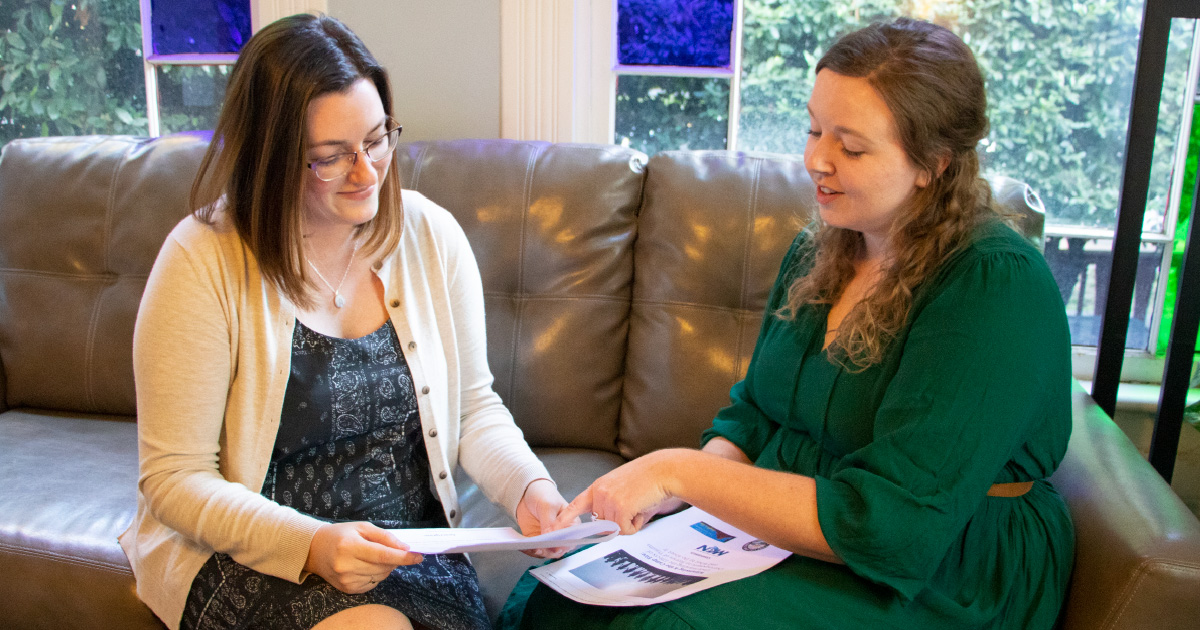
MCN's Jessica Candela working with Molly Jolliff on a webinar for those who provide support or services to Camp Fire survivors.
[Editor’s Note: In November 2018, Northern California's Camp Fire brought tens of thousands of people fleeing from neighboring Butte Creek Canyon, Concow, Magalia, and Paradise to Chico. MCN's California office, located in Chico, stepped in to assist when community members identified that clinicians needed additional tools to sustain their efforts, having been immersed in trauma for almost a year.]
On November 19, 2019, Migrant Clinicians Network (MCN) held a free community webinar, Witnessing and the Camp Fire: Understanding the Effects of Overexposure to Stories of Trauma and What to Do About It, co-sponsored by the Camp Fire Long Term Recovery Group and St. John the Evangelist Episcopal Church. The webinar faculty was Kaethe Weingarten, PhD, a former Harvard professor, trauma expert, and community psychologist.
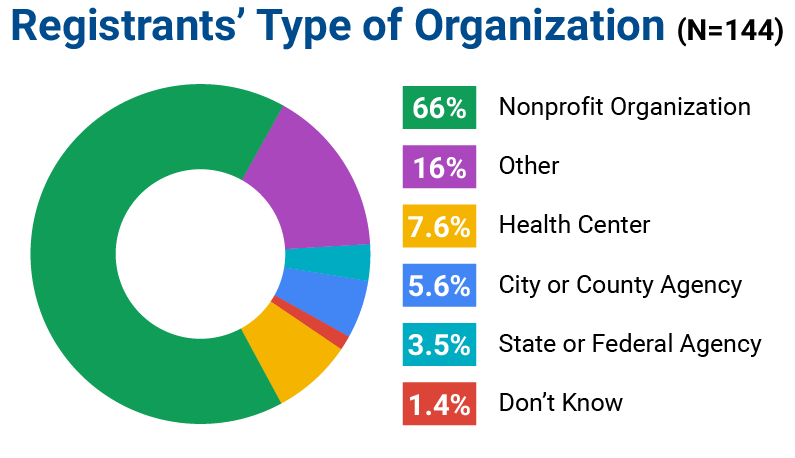
The webinar had 144 registrants with
90 people attending live and 54 attendees
completing the webinar evaluation. Using the aggregated
data from the evaluation, this report provides a snapshot
of community providers’ perspectives on their work in
Camp Fire response and recovery.
MCN co-developed survey items with the Spiritual and Emotional Wellness Committee of the Camp Fire Long Term Recovery Group.
“... I attended a free webinar about how witnessing and responding to a disaster can affect people, and it validated so much of what I had experienced over the past year. It’s often the helpers who end up being overexposed to stories of trauma, for example. And that in caring so deeply for others, we often overlook ourselves, which is detrimental to us and to the people we serve.”
- Ashiah Scharaga, Chico News & Review (December 12, 2019)
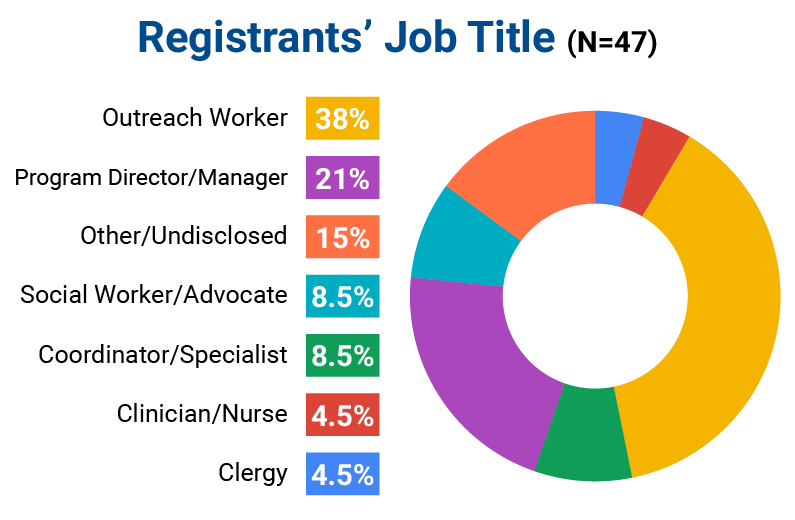
The survey asked about the challenges community providers and their organizations may face in providing quality support/services to fire survivors or fire-affected communities, and the most common responses centered on funding for operations, programs, and staff; communication and coordination of services between organizations; support for staff’s behavioral health and well-being; and the amount of people needing services.
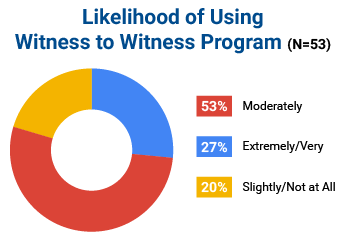
A portion of the webinar centered on Witness to Witness, a free program that seeks to support providers who are overexposed to trauma after disaster. In one to four in-depth conversations (phone or video), a licensed clinical specialist listens to a provider’s experience and helps them develop a personal toolkit for acute stress or what they witness daily on the job. 80% of webinar attendees who completed the evaluation stated they are extremely, very, or moderately likely to use Witness to Witness.
Finally, survey respondents were asked to consider what types of additional training they would be interested in. The top response was trainings on being trauma-informed, followed by: trainings to help others (e.g. people in crisis or recovering from trauma); trainings to help oneself (e.g. capacity-building, self-care, etc.); and trainings on working collaboratively with other people and organizations.
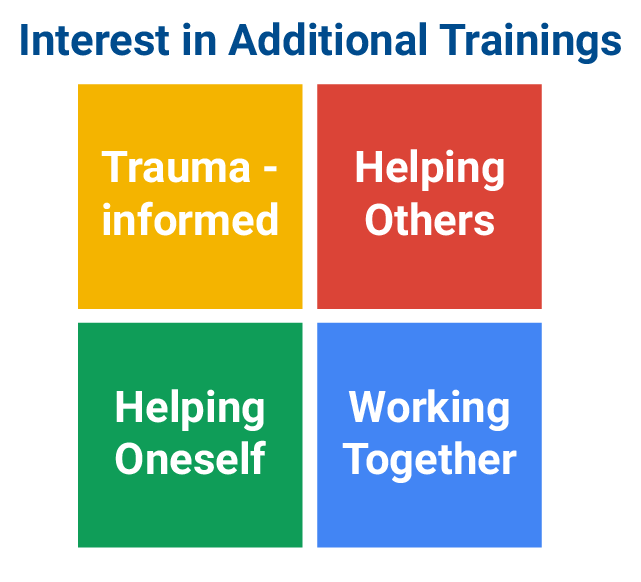
Questions or comments?
mcn@migrantclinician.org
512-579-4530
Resources
Witnessing and the Camp Fire: Understanding the Effects of Overexposure to Stories of Trauma and What to Do About It, a MCN webinar
Witnessing: How Administrators and Supervisors Can Strengthen Peer Support in the Workplace, a MCN webinar
“‘Building the Plane Mid-Air’: A Local Perspective, A Year After the Camp Fire,” a MCN blog written by Molly Jolliff
“Helping the Helpers: Tools for Trauma and Self-Care in the Wake of the Camp Fire,” a MCN blog
“Ideas for Team Meetings to Help with Workplace Stress,” by Dr. Kaethe Weingarten
“Questions to Make Visible People’s Reasons for Doing the Work They Do,” by Dr. Kaethe Weingarten
Witnessing and the Camp Fire: Understanding the Effects of Overexposure to Stories of Trauma and What to Do About It, a MCN webinar
Witnessing: How Administrators and Supervisors Can Strengthen Peer Support in the Workplace, a MCN webinar
“‘Building the Plane Mid-Air’: A Local Perspective, A Year After the Camp Fire,” a MCN blog written by Molly Jolliff
“Helping the Helpers: Tools for Trauma and Self-Care in the Wake of the Camp Fire,” a MCN blog
“Ideas for Team Meetings to Help with Workplace Stress,” by Dr. Kaethe Weingarten
“Questions to Make Visible People’s Reasons for Doing the Work They Do,” by Dr. Kaethe Weingarten
Like what you see? Amplify our collective voice with a contribution.
Got some good news to share? Contact us on our social media pages above.
Return to the main blog page or sign up for blog updates here.




